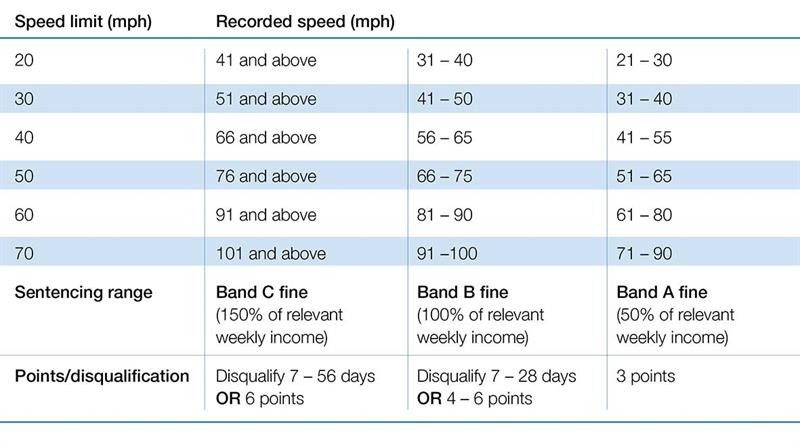
Tuesday 9th May 2017
The UK's new speeding fines explained
On 24 April 2017 the Government released a new set of regulations to punish speeding motorists. The biggest impact will be for motorists caught driving significantly over the speed limit – they could face a fine of up to 150% of their weekly income and receive six penalty points.
Why are the speeding fine penalties being changed?
These changes are the result of a consultation that took place in 2016. This showed that many magistrates and criminal justice professionals didn't feel the previous guidelines properly took into account the potential dangers associated with speeding.
Previously, the maximum fine for breaking the speed limit was £1000, or £2500 if caught on a motorway. Whilst the £2500 cap remains, the expectation is that more offenders will face higher level of fines under the revised guidelines.
So what are the new rules?
The table below shows details of the various speeding bands and we've also provided some useful examples:

Band A speeding fine example:
If you’re caught doing between 31 and 40mph in a 30mph zone, you can expect to receive a fine equivalent to 50% of your weekly income and three penalty points on your driving licence.Band B speeding fine example:
If you’re caught doing between 41 and 50mph in a 30mph zone, you may face a fine equivalent to 100% of your weekly income and four penalty points on your driving licence. You may also face disqualification from driving for up to 28 days.Band C speeding fine example:
If you get caught doing 51mph or above in a 30mph zone, you’ll face a fine equivalent to 150% of your weekly income and six penalty points on your driving licence. You may also be disqualified from driving for up to 56 days.If you’re disqualified for 56 days or more you must apply for a new driving licence before you’ll be able to start driving again.
To put this into context, for someone who earns £25,000 per annum, a Band C fine could cost you £720. With an annual earnings of £40,000 per annum, the fine could be £1150!
Are there any exceptions?
Magistrates are instructed to take any mitigating or aggravating factors into account. Examples would include being caught speeding because of an emergency or having no previous convictions. In these cases a Band B fine could be reduced from 100% of your weekly income to 75%.
On the other hand, if you’re a persistent offender or you’re caught speeding in bad weather then the fine can be increased. In these circumstances a Band B offence could be increased to 125% of your weekly income.
The final decision will be in the hands of the magistrates. Remember that they have the power to impose higher fines, a driving ban or, in extreme cases, issue a prison sentence.
A final thought
Speeding is breaking the law and has serious consequences. If you do get caught speeding and need legal help with your motoring prosecution defence, you may well face the impact of legal fees. This is where our Legal Expenses product could help.
With up to £100,000 of cover for your legal costs and access to specialist motor legal advice, it could prove especially useful if you need support with your defence; something to consider if you rely on your driving licence for work and points or a ban could prevent you from working or even mean you lose your job.
If you already have a policy with us, it’s easy to add Legal Expenses cover to your policy. Call us on 0344 902 8330 and find out how. And if you’re not already a customer, call us on 0344 902 8331 and we’ll arrange a quote for you.
You can find out more about our Legal Expenses product here.


